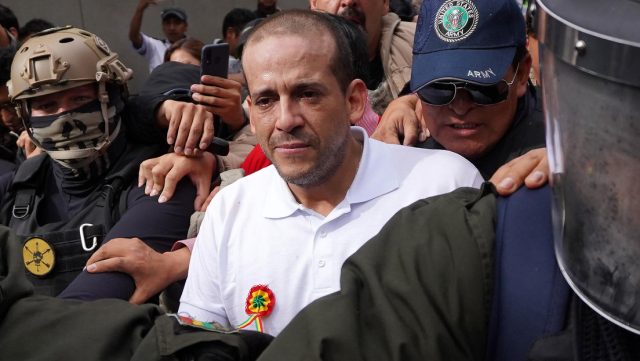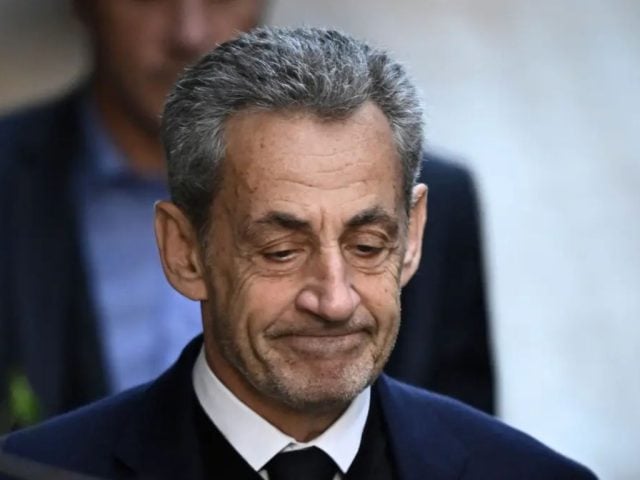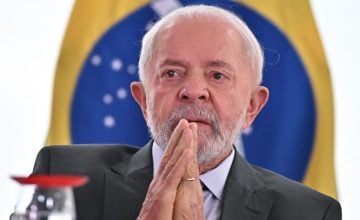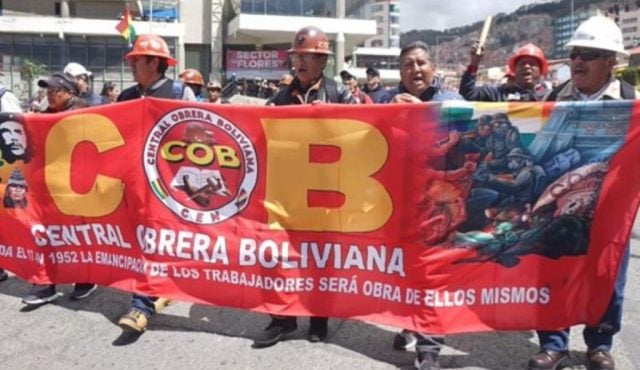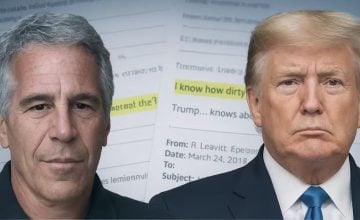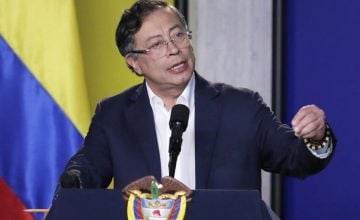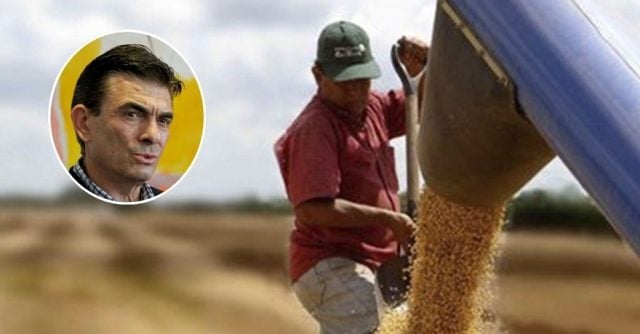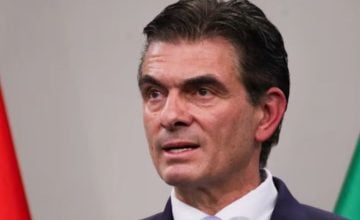Three years were enough for the ultra-conservative politician Luis Fernando Camacho to become the main opposition leader in Bolivia, thanks to the leading role he played during the coup d’état suffered by former President Evo Morales.
Since the end of 2019, this 43-year-old lawyer went from being a regional leader who headed the Pro Santa Cruz Civic Committee to running for the presidency and, finally, winning the governorship of Santa Cruz, the richest department in the country and also , it is the department in which racism, classism and discrimination against indigenous peoples predominate.
Today, attention is once again focused on his figure after he was arrested on Wednesday night. The violent protests that immediately broke out in Santa Cruz to challenge the process against him marked the beginning of a new political crisis in the Government of President Luis Arce, reports RT.
Camacho is accused of the crimes of terrorism, sedition and conspiracy in the legal case called Coup d’état I that investigates the role he played; his father, José Luis Camacho; former de facto president Jeanine Áñez, former commander of the Armed Forces Williams Kaliman; the ex-commander of the Police Yuri Calderón, and other ex-functionaries in the ‘interruption’ of the democratic government of Morales.
Last June, Áñez, Kaliman and Calderón were convicted in the framework of the Coup d’état II trial. But the other process that began in November 2020, which accused Camacho and his father, and which had been delayed because his statement was suspended twice, was still pending.
They were first summoned in September 2021 in La Paz, but the appearance was canceled due to alleged health problems of Camacho’s father. Then, last July, a commission of prosecutors traveled to Santa Cruz to take their statement, but both refused. They even threatened judicial officers.
The judicial process advanced until an arrest warrant was issued on October 31, which became effective on Wednesday afternoon, almost two months later.
The capture will mark the story of a leader who, in his two decades of political career, declared himself the greatest enemy of the Movement for Socialism (MAS).The coup and Camacho
Coming from a wealthy family from Santa Cruz, Camacho began his public career in the early 2000s militating in political organizations in this department, but it was not until 2013 that his figure began to shine in the Pro Santa Cruz Civic Committee, which had already been consolidated. as one of the ultra-opposition organizations to the government headed by Morales, whom he always dismissed as a «tyrant» or «dictator».
In February 2019, Camacho became president of the Committee and, months later, he fueled the coup under the pretext that Morales had allegedly committed fraud in the presidential elections of October of that year.
The leader called a Cabildo (Council) in Santa Cruz and led violent protests for 21 days. Assuming a representation that he did not have, he gave Morales a period of 48 hours to resign.
He then drafted a resignation letter himself and demanded that the president sign it, which Morales refused. After the coup, Camacho tattooed in his body that letter, along with a cross, to celebrate his political victory.
The histrionics of his speeches, which were full of religious references, and the disqualifications of the president positioned his image in the national and international media. In Bolivia, he popularized his nickname: «macho», in reference to the firmness and intransigence that he showed to attack Morales and the MAS.
On the morning of November 10, 2019, when the serious post-electoral crisis worsened, Camacho arrived at the Government headquarters in La Paz, knelt down and, shouting «God will return to the Palace», placed a Bible on the floor along with a Bolivian flag.
Hours later, forced by the Armed and Security forces, Morales resigned. Camacho attributed the outcome to his prayers.
A month later, the video of a conversation was leaked in which Camacho acknowledged that his father had made an agreement with the Army and the Police so that they would not repress the protests that the opponents carried out after the elections.
«It was my father who closed (the deal) with the military so that they wouldn’t leave (their barracks), and with the Police in the same way (…) when we were able to consolidate that both [Police and Army] were not going to come out, that was when we gave 48 hours [of term for Morales to resign]”, adds Camacho in the video.
These demonstrations, as well as the lack of support from the Armed and Security forces, were decisive in the consummation of the coup.
Campaign and scandals
With Morales now in exile in Mexico and with Áñez self-proclaimed as president, Camacho took advantage of the popularity he had obtained to run in the presidential elections that were held on October 18, 2020.
Contrary to his expectations, the Santa Cruz leader came in third place with 14% of the votes, behind Luis Arce, the MAS candidate; and Carlos Mesa, from the Citizen Community coalition.
In addition to losing, his campaign was embroiled in a scandal when an audio was revealed in which Marco Pumari asked Camacho for $250,000 and control over the management of two customs offices to be his running mate, that is, a candidate for the vice presidency. Neither one of them denied the conversation, but both blamed the other for the leak.
Established as the new and mediatic opposition leader to the MAS, Camacho ran as a candidate for governor of Santa Cruz in the elections held on March 7, 2021. There, he did win with 55.6% of the votes.
From that position, he repeatedly confronted Arce. The fight had a climax this year, when Camacho challenged the changes in the dates for the census and called a strike that mutated into an unexpected political crisis in the national government. The strike lasted 36 days and led to violent marches and protests, which left at least four dead and millions in losses.
At the beginning of December, Arce ended the conflict by proclaiming the Census Law that establishes that this consultation will take place in March 2024. The governor of Santa Cruz presumed that he had «bent down the hand» of the president. Only three weeks later, the Prosecutor’s Office arrested him.
